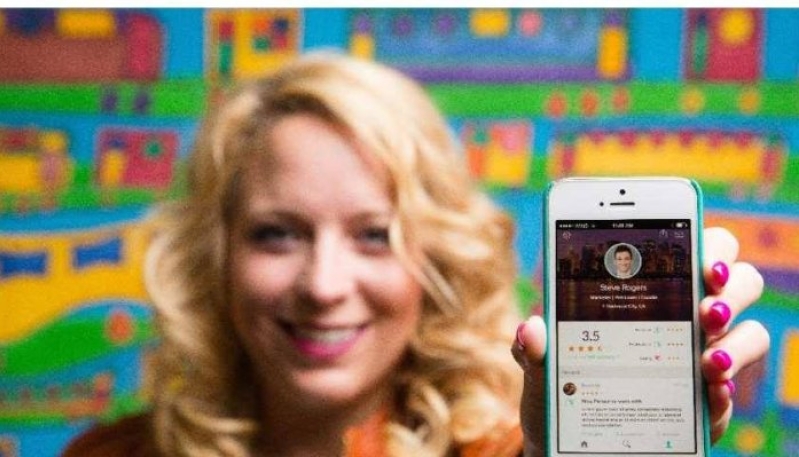
Peeple, a controversial new app that will allow users to rate and search other human beings, has created a huge internet firestorm -- and it hasn't even been released.
Created by Julia Cordray and Nicole McCullough, Peeple allows users to review their friends, coworkers, and romantic partners using a one- to five-star rating scale. The pair describe their app as a "concept that has never been done before in a digital space." They say the app lets users "really see how you show up in this world as seen through the eyes of your network."
"As two empathetic female entrepreneurs in the tech space, we want to spread love and positivity," Cordray told The Washington Post. "We want to operate with thoughtfulness."
To join Peeple, users must use their real names and be at least 21 years old. To review somebody who is not on the app, users can create a profile for them with their cell phone number; they will be notified via text that they have been added to Peeple. However, they won't have an option to remove their profile from the app, according to Newsweek.
Only positive reviews will be posted for those who are not on Peeple but are being rated by others. For those who are registered, negative reviews will be published after 48 hours of being written.
"People do so much research when they buy a car or make those kinds of decisions," Cordray said. "Why not do the same kind of research on other aspects of your life?"
According to CNN, the app will be available for free on Apple (AAPL, Tech30) iTunes in November and there are plans to build an app for Android.
Peeple has sparked widespread controversy, with some slamming it as the "worst app ever" and others expressing fears it will lead to cyberbullying.
"Blurring professional, personal and romantic reviews for anyone to see is preposterous, even if it's comprised of only glowing reviews," marketing analyst Brian Solis of Altimeter Group wrote in a LinkedIn post. "The lack of context and more so consent is senseless and more so irresponsible."
Others, like Snopes contributor Kim LaCapria, speculate that Peeple is simply an elaborate hoax gone terribly wrong.
In a lengthy post, she outlines several reasons why people shouldn't take the app seriously: Cordray and McCullough have no app building experience on their resumes, and there were few mentions of the app on Google's top results when one searched for "Peeple" just three days before The Washington Post story. LaCapria also pointed out that several details released about the service remained suspiciously vague.
Additionally, on Monday, the website and social media pages for Peeple were taken offline.
However, in a blog published on LinkedIn, Cordray denied suggestions that the app was a joke and said she has received death threats and insulting comments since news of Peeple went viral. She also announced feature of the app, in which negative comments made about individuals would be posted after a certain time limit, would now no longer be part of it.
"The question I received the most is 'This must be a hoax. You're not seriously going to create this are you?' The answer is: It's real but not in the way it's currently being portrayed. We are in fact creating an app called Peeple and have every intention of releasing it at the end of November," she wrote.
"Except, there is one thing I must tell you; this has always been a positivity app. Peeple will not be a tool to tell other humans how horrible they are. Actually, it's the exact opposite. Peeple is a POSITIVE ONLY APP. We want to bring positivity and kindness to the world."






